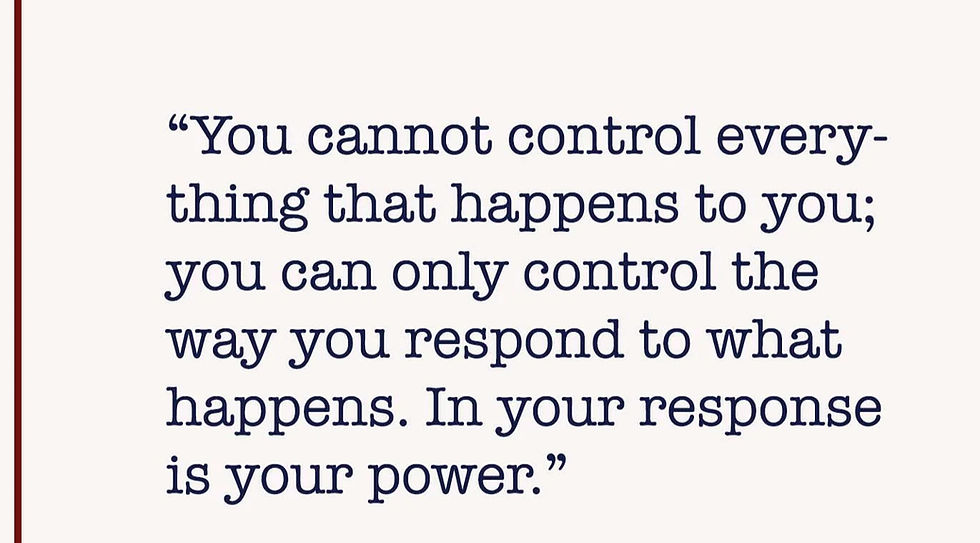Rediscover Your Balance: Understanding PTSD Through a Chakra Lens
- gurteshwarsandhu31
- Sep 1, 2025
- 4 min read

Post-Traumatic Stress Disorder (PTSD) is a complex condition that profoundly impacts an individual's mental, emotional, and physical well-being. While traditional therapies like cognitive-behavioral therapy (CBT) and Eye Movement Desensitization and Reprocessing (EMDR) are crucial, many people find complementary approaches like chakra healing to be profoundly supportive in addressing the energetic disruptions caused by trauma.
Understanding PTSD Through a Chakra Lens
From an energetic perspective, trauma, including the intense experiences that lead to PTSD, can create significant blockages, imbalances, or depletion within the body's chakra system. These "energy kinks" can manifest as many of the classic symptoms of PTSD:
Root Chakra (Muladhara) and Safety: PTSD often shatters a person's fundamental sense of safety and security in the world. An imbalanced Root Chakra can lead to constant hypervigilance, feeling ungrounded, an inability to trust, survival issues, and extreme anxiety or fear. Healing here focuses on re-establishing a sense of safety within one's own body and in the world.
Sacral Chakra (Svadhisthana) and Emotional/Sexual Essence: Trauma, particularly sexual trauma, directly impacts this chakra, which governs emotions, creativity, pleasure, and healthy relationships. Imbalances can manifest as emotional numbness, difficulty expressing feelings, creative blocks, issues with intimacy or sexuality (e.g., hypersexuality, sexual anorexia, shame, or avoidance), and confused boundaries.
Solar Plexus Chakra (Manipura) and Personal Power: PTSD often involves a profound loss of control and power. An imbalanced Solar Plexus can lead to feelings of helplessness, low self-esteem, difficulty making decisions, intense anger or fear, and digestive issues. Healing focuses on reclaiming personal power, rebuilding self-trust, and establishing healthy boundaries.
Heart Chakra (Anahata) and Connection: Trauma can cause individuals to build emotional walls to protect themselves, leading to a blocked Heart Chakra. This can result in difficulty trusting others, fear of intimacy, isolation, emotional detachment or overwhelming reactivity, and challenges with self-compassion. Healing gently encourages opening the heart to healthy connection, starting with self-love.
Throat Chakra (Vishuddha) and Voice/Truth: Survivors of trauma often struggle with finding and using their voice, feeling unheard, or having their truth disbelieved. A blocked Throat Chakra can manifest as difficulty expressing needs, inability to set verbal boundaries, or physical throat issues. Healing here supports authentic self-expression and reclaiming one's right to speak their truth.
Third Eye Chakra (Ajna) and Intuition/Clarity: While not always directly impacted as the lower chakras, severe trauma can lead to dissociative patterns (escaping into mental or "dream" worlds) or difficulties with mental clarity, focus, and trusting one's intuition. Healing here supports grounding higher awareness and integrating it with bodily experience.
How Chakra Healing Supports PTSD Recovery
Chakra healing, often integrated with other mind-body practices, aims to gently release stagnant or blocked energy associated with traumatic experiences, allowing life force (prana) to flow freely. This holistic approach can:
Re-establish a Sense of Safety and Grounding: By working with the Root Chakra, practices like grounding meditations and connecting with nature help re-anchor individuals in their bodies and the present moment, reducing hypervigilance.
Facilitate Emotional Release and Expression: Techniques for the Sacral Chakra, such as creative expression (art, dance), gentle breathwork, and allowing emotions to surface without judgment, help process stored trauma and re-engage with healthy emotional flow.
Rebuild Personal Power and Boundaries: Practices for the Solar Plexus, like setting small boundaries, engaging in empowering activities, and deep breathing, can help individuals reclaim their sense of control and self-worth.
Foster Self-Compassion and Connection: Heart Chakra healing through self-compassion meditations, gratitude practices, and slowly engaging in safe connections helps to soften emotional armour and cultivate inner kindness.
Empower Authentic Voice: Throat Chakra work, including humming, singing, journaling, and practicing speaking needs aloud, supports survivors in finding their voice and expressing their truth.
Support Nervous System Regulation: Many chakra healing techniques, particularly breathwork and gentle movement, help to calm the nervous system, which is often in a state of chronic activation in PTSD. This can improve sleep, reduce anxiety, and enhance overall well-being.
Complement Professional Therapy: Chakra healing is most effective as a complementary modality. It can help individuals connect with their body's wisdom, process emotions on an energetic level, and cultivate self-awareness, which can significantly enhance the effectiveness of psychotherapy.
While scientific research specifically on "chakra healing" for PTSD is emerging, studies on related mind-body practices like yoga, meditation, and Reiki have shown positive impacts on PTSD symptoms, including reductions in anxiety, depression, anger, and improvements in pain tolerance, self-esteem, and coping abilities.
Healing from PTSD is a courageous and deeply personal journey. Chakra healing offers a gentle yet powerful framework to address the energetic roots of trauma, supporting survivors in gradually releasing the past and stepping into a more balanced, empowered, and whole future.
Share your thoughts below! What are your favourite ways to bring balance to your energy?
Disclaimer: This blog serves as a complement to therapy, offering support and insights that can enhance your therapeutic journey. It is not a substitute for professional therapy.
If you are facing mental health challenges, seeking guidance from a qualified mental health professional is essential. They can provide personalized care and evidence-based treatments tailored to your specific needs.
Remember, your mental health is a priority, and reaching out for professional help is a sign of strength. Use this blog as a supportive resource alongside your therapy sessions, and don't hesitate to seek professional help when you need it.



Comments